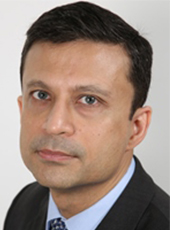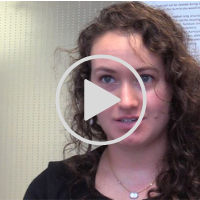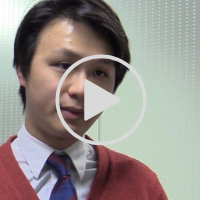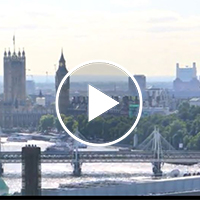Degree awardedMSc Duration12 months full-time. Entry requirements
We require a First or Upper Second class honours degree (2:1, with 60% average) from a UK university or the overseas equivalent.
When assessing your academic record, we take into account your grade average, position in class, references and the standing of the institution where you studied your qualification.
Full entry requirements How to apply
NOTE: There is a non-refundable application fee of £60, which you can pay using our secure online payment facility . We cannot consider applications until you have paid the application fee.
Course options
| Full-time | Part-time | Full-time distance learning | Part-time distance learning | |
|---|---|---|---|---|
| MSc | Y | N | N | N |
Course overview
Develop a critical appreciation of key areas in marketing, with the opportunity to hone your skills in a specific area.
Open days
Postgraduate taught virtual open week
29 th June to 3 rd July
The virtual open events will include a range of webinars from the Alliance MBS Postgraduate Careers Service, presentations and Q&A from Programme Directors for each course, guidance on the application process and your opportunity to chat with current students.
Fees
For entry in the academic year beginning September 2020, the tuition fees are as follows:
- MSc (full-time)
UK/EU students (per annum): £14,000
International students (per annum): £24,000
The fees quoted above will be fully inclusive for the course tuition, administration and computational costs during your studies.
Refund Policy
Due to the competition for places and limited availability, our courses require a deposit of £1000 to cover non-recoverable costs and secure your place. The deposit will be deducted from your tuition fees when you register on the course.
The deposit is non-refundable, except in the following situations:
- you fail to meet the conditions of your offer (see below for further information); and/or
- you are refused a visa or entry clearance to enter the UK (proof must be submitted)
If an offer has been made specifying an English Language condition which you do not meet, the Admissions Team will require the official certificate of an English Language test taken after the date of offer as evidence that you have attempted to meet your offer conditions for a refund to be approved. The English Language test certificate provided with your application documents will not be accepted as proof that you have attempted to meet your offer conditions as such a certificate will predate the offer.
If an offer has been made specifying an academic condition, the Admissions Team will require the official university documentation showing that you have not met this academic condition from the institution at which you have studied, as evidence for a refund to be approved.
The Admissions Team reserves the right to refuse to refund of any deposit that does not meet with the requirements outlined above.
Policy on additional costs
All students should normally be able to complete their programme of study without incurring additional study costs over and above the tuition fee for that programme. Any unavoidable additional compulsory costs totalling more than 1% of the annual home undergraduate fee per annum, regardless of whether the programme in question is undergraduate or postgraduate taught, will be made clear to you at the point of application. Further information can be found in the University’s Policy on additional costs incurred by students on undergraduate and postgraduate taught programmes (PDF document, 91KB).
Scholarships/sponsorships
Read about available scholarships and funding .
- Alliance MBS Masters Scholarships for UK/EU/International students
- Alliance MBS Masters Scholarships for US residents
Contact details
School/FacultyAlliance Manchester Business SchoolContact nameMaster’s Admissions OfficeTelephone+44 (0)161 306 1339Emailpg.ambs@manchester.ac.ukWebsitehttps://www.alliancembs.manchester.ac.uk/study/masters/msc-marketing/School/FacultyAlliance Manchester Business School was established in 1965 as one of the UK’s first two business schools. Today, we are the UK’s largest campus-based business and management school, and ‘Original Thinking Applied’ is at the heart of everything we do. Find out more .
Academic entry qualification overview
We require a First or Upper Second class honours degree (2:1, with 60% average) from a UK university or the overseas equivalent.
When assessing your academic record, we take into account your grade average, position in class, references and the standing of the institution where you studied your qualification.
English language
For the latest information on demonstrating your English proficiency for those whose first language is not English, please see our language requirements .
English language test validity
Some English Language test results are only valid for two years. Your English Language test report must be valid on the start date of the course.
Other international entry requirements
We accept a range of qualifications from different countries. For these and general requirements see entry requirements for your country .
How to apply
NOTE: There is a non-refundable application fee of £60, which you can pay using our secure online payment facility . We cannot consider applications until you have paid the application fee.
Advice to applicants
Your statement of purpose should cover the areas outlined below and be one page A4:
- Tell us why you are interested in the MSc Marketing course at Alliance MBS and how the course will impact on your future
- Describe what makes you an outstanding applicant and describe your potential to contribute to all aspects of the course.
Please note: there is a non-refundable application fee of £60, which you can pay using our secure online payment facility . We cannot consider applications until you have paid the application fee.
How your application is considered
We can only process applications with the following documents:
- £60 non-refundable application fee payment
- up-to-date English language score outlining individual element scores, or date of your test (where applicable)
- first and second year transcript (scanned copies are accepted at the time of application)
- one academic reference letter , or a professional reference letter if you graduated more than two years ago
- statement of purpose
- copy of passport (for non-home/EU students only)
Deferrals
To defer your offer to the following year, you must contact your admission officer to get a copy of the deferral form. You can only defer your offer for one year.
Re-applications
If you applied in the previous year and your application was not successful you may apply again. Your application will be considered against the standard course entry criteria for that year of entry. In your new application you should demonstrate how your application has improved. We may draw upon all information from your previous applications or any previous registrations at the University as a student when assessing your suitability for your chosen course.
Course description
MSc Marketing experience: Davide Cappelli
Get your ideas out there and your messages heard with a specialist degree which gives you all the skills and knowledge you need for a successful career in marketing, plus a range of options to help you specialise in your chosen field.
Enjoy a stimulating and flexible degree designed to help you develop a critical appreciation of key areas in marketing, while giving you the chance to hone your skills in a specific area, or you can pursue an academic career via subsequent doctoral work.
- Gain the key skills required for a successful career in marketing
- Learn about marketing management strategy and the development processes to bring new products to market
- Learn about research methods, including techniques of data collection and analysis
Option to choose a specialist pathway to help you stand out in the job market:
- Business-to-business
- Consumer behaviour
- Corporate Social Responsibility
- International marketing
- Retailing
- Services
You have the opportunity to apply for an international exchange to broaden your horizons and enhance your employability in the global job market. This will need to be discussed on an individual basis with the course director.
Coursework and assessment
Assessment across the course units varies, and includes a combination of examinations, course work, group project and presentations, individual essay and assignments. A 15,000-25,000 word dissertation is also normally undertaken.
Course unit details
During the course, you will be taking 180 credits in total. The eight taught modules during semesters 1 and 2 will total 120 credits.
We now offer a choice of two routes through the final stage of your Masters, which accounts for 60 credits.
- Dissertation
- The Group Business Case Project. You will get the opportunity to apply the knowledge gained in the first two semesters to practical business problems. If you select this route, you will work in a group to develop a report on a contemporary business problem and then individually develop an analysis of your group report.
There may also be an opportunity to spend semester 2 abroad on an international exchange . This will need to be discussed on an individual basis with the Programme Director.
Course unit list
The course unit details given below are subject to change, and are the latest example of the curriculum available on this course of study.
| Title | Code | Credit rating | Mandatory/optional |
|---|---|---|---|
| Fundamentals of Marketing Management | BMAN73991 | 15 | Mandatory |
| Marketing Implementation and Strategy | BMAN74011 | 15 | Mandatory |
| Quantitative Marketing Research in the Digital Age | BMAN74021 | 15 | Mandatory |
| Professional Qualitative Marketing Research Skills | BMAN74031 | 15 | Mandatory |
| Corporate Social Responsibility | BMAN60162 | 15 | Optional |
| Integrated Marketing Communication & Advertising | BMAN60222 | 15 | Optional |
| Consumer Behaviour | BMAN70102 | 15 | Optional |
| Business to Business Marketing | BMAN70152 | 15 | Optional |
| Retail Marketing | BMAN70172 | 15 | Optional |
| Services Marketing | BMAN70252 | 15 |
Course description
MSc Marketing experience: Davide Cappelli
Get your ideas out there and your messages heard with a specialist degree which gives you all the skills and knowledge you need for a successful career in marketing, plus a range of options to help you specialise in your chosen field.
Enjoy a stimulating and flexible degree designed to help you develop a critical appreciation of key areas in marketing, while giving you the chance to hone your skills in a specific area, or you can pursue an academic career via subsequent doctoral work.
- Gain the key skills required for a successful career in marketing
- Learn about marketing management strategy and the development processes to bring new products to market
- Learn about research methods, including techniques of data collection and analysis
Option to choose a specialist pathway to help you stand out in the job market:
- Business-to-business
- Consumer behaviour
- Corporate Social Responsibility
- International marketing
- Retailing
- Services
You have the opportunity to apply for an international exchange to broaden your horizons and enhance your employability in the global job market. This will need to be discussed on an individual basis with the course director.
Coursework and assessment
Assessment across the course units varies, and includes a combination of examinations, course work, group project and presentations, individual essay and assignments. A 15,000-25,000 word dissertation is also normally undertaken.
Course unit details
During the course, you will be taking 180 credits in total. The eight taught modules during semesters 1 and 2 will total 120 credits.
We now offer a choice of two routes through the final stage of your Masters, which accounts for 60 credits.
- Dissertation
- The Group Business Case Project. You will get the opportunity to apply the knowledge gained in the first two semesters to practical business problems. If you select this route, you will work in a group to develop a report on a contemporary business problem and then individually develop an analysis of your group report.
There may also be an opportunity to spend semester 2 abroad on an international exchange . This will need to be discussed on an individual basis with the Programme Director.
Course unit list
The course unit details given below are subject to change, and are the latest example of the curriculum available on this course of study.
| Title | Code | Credit rating | Mandatory/optional |
|---|---|---|---|
| Fundamentals of Marketing Management | BMAN73991 | 15 | Mandatory |
| Marketing Implementation and Strategy | BMAN74011 | 15 | Mandatory |
| Quantitative Marketing Research in the Digital Age | BMAN74021 | 15 | Mandatory |
| Professional Qualitative Marketing Research Skills | BMAN74031 | 15 | Mandatory |
| Corporate Social Responsibility | BMAN60162 | 15 | Optional |
| Integrated Marketing Communication & Advertising | BMAN60222 | 15 | Optional |
| Consumer Behaviour | BMAN70102 | 15 | Optional |
| Business to Business Marketing | BMAN70152 | 15 | Optional |
| Retail Marketing | BMAN70172 | 15 | Optional |
| Services Marketing | BMAN70252 | 15 |
The MSc Marketing is an outstanding one-year programme providing an analytical, business-focused curriculum to develop your skills as an innovative and strategic marketer.
A practical project will enable you to apply your insights and expertise to a real-world consulting problem, and to develop your professional and practical skills as a marketing manager.
The programme’s core courses bring learning from the latest research into the classroom, giving a well-rounded, critical analysis of consumer behaviour and data analytics, in the context of real business challenges. You will gain an in-depth understanding of consumer markets, based on cutting-edge research and insights in human behaviour. You will also develop your talent and expertise in data analysis, enabling you to take a strategic approach to designing and developing marketing campaigns. A core course in the foundations of business management will also develop your knowledge of the contexts in which marketing managers can drive forward organisational goals.
This unique combination of human insight, analytical expertise and business understanding will set you apart from other marketing graduates, and give you the tools to create truly effective evidence-based solutions to the ever-changing marketing challenges facing businesses worldwide.
Read more about the LSE student experience on our student blog, The Student Lens >
Teaching and learning in Michaelmas Term 2020
Information on how LSE will deliver teaching and learning in Michaelmas term can be found here.
Programme details
| Start date | Introductory course begins in September 2020 |
|---|---|
| Application deadline | None – rolling admissions. However please note the funding deadlines |
| Duration | 12 months full-time only |
| Number of applications per place | 9.9 |
| Tuition fee | UK/EU: £29,184 Overseas: £29,760 |
| Financial support | Graduate support scheme (deadline 27 April 2020) |
| Minimum entry requirement | 2:1 degree or equivalent in any discipline |
| GRE/GMAT requirement | GMAT or GRE is recommended for all applicants and it is required for applicants without a UK undergraduate or graduate degree |
| English language requirements | Standard (see ‘Assessing your application’) |
| Location | Houghton Street, London |
For more information about tuition fees and entry requirements, see the fees and funding and assessing your application sections.Entry requirements
Entry requirements for MSc Marketing
- undergraduate degree at 2.1 level or above, or international equivalent. See international entry requirements Applicants from any academic background are welcomed. Prior formal study of quantitative subjects is not required, but students must come prepared to engage with quantitative topics such as statistics and data analytics.
- no prior work experience is required, however students with experience are welcome. Please detail any relevant experience in your application.
- GMAT or GRE is recommended for all applicants and is required for applicants without a UK undergraduate or graduate degree. For those with a UK undergraduate or graduate degree, a good GMAT/GRE score, although not a requirement, will significantly enhance your chances of being admitted. GMAT median score for cohort 2017/18 was 710. More about GMAT/GRE.
- English language requirements
Your application will be considered on its academic merits. An offer of a place may be conditional on attending additional courses and/or passing qualifying examinations at a suitable standard, in addition to your degree. You should note that there are always many more applications than places available at LSE and possession of the minimum entrance requirements does not guarantee that you will be offered admission. It is therefore in your interests to apply as early as possible.
We welcome applications from all suitably qualified prospective students and want to recruit students with the very best academic merit, potential and motivation, irrespective of their background.
We carefully consider each application on an individual basis, taking into account all the information presented on your application form, including your:
– academic achievement (including predicted and achieved grades)
– statement of academic purpose
– two references
– GMAT/GRE
– CV
See further information on supporting documents
When to apply
Applications for this programme are considered on a rolling basis, meaning the programme will close once it becomes full. There is no fixed deadline by which you need to apply, however we encourage you to apply early to avoid disappointment.
Please note that to be considered for any LSE funding opportunity, you must have submitted your application and all supporting documents by the funding deadline. See the fees and funding section below on this page for more details.
Apply now >Programme structure and courses
Curriculum overview
We are ranked #2 in the world for social science and management, and the MSc Marketing programme is founded in LSE’s tradition for academic excellence.
The curriculum is designed around four compulsory core courses providing an in-depth training in two areas: managing big data and analytics, and understanding consumer behaviour. These two key areas are underpinned by an understanding of the wider business context in which marketing teams operate, and the role of marketing in driving strategic organisational objectives.
You can also customise your programme according to your own interests and career goals with a choice of optional elective courses from leading academic departments across LSE.
You will complete the programme with a Marketing Action Learning Project, which will enable you to develop your practical marketing skills, bring together knowledge from courses throughout the programme and deepen your knowledge in a specific area of interest.
Introductory course (non-assessed)
Students are required to attend an introductory course inearly September 2020, before the beginning of the programme.
This course will provide an intensive ‘boot-camp’ training in the basic principles of business, and the global environment in which firms operate. This is designed to give an essential context to the specialist marketing knowledge which you will develop throughout the programme, in order to build your understanding of the strategic role marketing management plays in driving business.
Compulsory core courses (2.0 units)
(* denotes a half unit)
Principles of Marketing*
Exploring the key analytical frameworks, technical tools and concepts essential to building an effective marketing strategy, and developing students’ skills in analysing and making sense of complex real-world business situations.
Marketing Analytics I: Consumer Analysis Fundamentals*
An absolute essential in the age of Big Data, this course provides a fundamental understanding of marketing analytics and research methods, and the interpretation and use of data insights.
Consumer Insights: Behavioural Fundamentals*
Developing an understanding of human psychology and consumer behaviour to bring insights to fundamental questions, including why consumers want what they want, what information they will respond to and what they will ignore, and how and why they make decisions.
Marketing Action Learning Project*
A team project analysing and solving a real-world marketing issue within an organisation, bringing together learning across all courses in the programme. Students will develop team-working skills and consulting experience, working to produce a marketing report with in-depth insights to provide a basis to recommendations for effective solutions to a complex real-world issue.
Optional elective courses (2.0 units)
In addition to the core courses above, you will tailor your programme according to your own interests and career goals with optional elective courses.
You will have the opportunity to select from a choice of specialist marketing elective courses below, as well as options to expand your knowledge with elective courses from the LSE Department of Management, covering a range of broader topics relevant for marketing managers today.
Specialist marketing electives:
Marketing Analytics II: Analytics for Managing Innovations, Products & Brands*
Building insights in state-of-the-art Marketing Analytics models for managerial decision-making in marketing, which enable companies to emerge as market leaders, successfully launch new products or innovations, and manage mature products and brands.
Digital Marketing*
Developing cutting-edge tools and techniques for strategic online advertising and social media marketing, with technology and analytics to collect, analyse and act on customer insights.
Decisions, Biases and Nudges*
Introducing Behavioural Decision Science: the science that explains and predicts how humans make decisions and how well.
Strategic Decision Making*
Learn the art of successful strategic decisions in both the professional domain and the personal one.
Pricing Strategy*
Providing an essential understanding of the fundamental principles of pricing strategy, pricing tactics and implementation, using analytical tools, theories and frameworks to formulate successful strategies in pricing.
Other elective options:
Algorithmic Techniques for Data Mining*
The Audience in Media and Communications*
Contemporary Issues in Media and Communications Policy*
Incentives and Governance and Organisations*
Leadership in Organisations: Theory and Practice*
Marketing Analytics II: Analytics for Managing Innovations, Products and Brands*
Research Methods for Evaluation in Health, Development and Public Policy*
Qualitative Research with Digital and Visual Data*
Multivariate Analysis and Measurement*
Generalised Linear Modelling and Survival Analysis*
To find the most up-to-date list of optional courses please visit the relevant School Calendar page.
You must note however that while care has been taken to ensure that this information is up to date and correct, a change of circumstances since publication may cause the School to change, suspend or withdraw a course or programme of study, or change the fees that apply to it. The School will always notify the affected parties as early as practicably possible and propose any viable and relevant alternative options. Note that that the School will neither be liable for information that after publication becomes inaccurate or irrelevant, nor for changing, suspending or withdrawing a course or programme of study due to events outside of its control, which includes but is not limited to a lack of demand for a course or programme of study, industrial action, fire, flood or other environmental or physical damage to premises.
You must also note that places are limited on some courses and/or subject to specific entry requirements. The School cannot therefore guarantee you a place. Please note that changes to programmes and courses can sometimes occur after you have accepted your offer of a place. These changes are normally made in light of developments in the discipline or path-breaking research, or on the basis of student feedback. Changes can take the form of altered course content, teaching formats or assessment modes. Any such changes are intended to enhance the student learning experience.You should visit the School’s Calendar, or contact the relevant academic department, for information on the availability and/or content of courses and programmes of study. Certain substantive changes will be listed on the updated graduate course and programme informationpage.Teaching and assessment
The LSE learning experience
The curriculum is designed to challenge your view of the world, and of marketing as a discipline. You will be asked to read the latest research to understand the underlying reasons why consumers and markets across the globe today exist as they do, and the practical implications for your future career as a marketing manager. You will critically assess trends, conflicts and patterns in business, consumer behaviour and markets, and form your own opinions to defend and debate with your classmates in seminars. You will learn how to develop and communicate well-reasoned arguments, and to tackle complex decisions and problems in marketing in the context of the real socioeconomic and geo-political architecture in which businesses operate across the globe.
Teaching and assessment
Courses are taught in lecture and class or seminar format. Lectures introduce the core theoretical and technical concepts whilst their associated classes allow students to discuss and apply these concepts through exercises and in-depth study. Seminars allow for the focused study of key concepts in a more informal style and often involve presentations by students on selected course materials. Many teachers adopt a variety of teaching methods to deliver their courses such as class exercises, team presentations, individual or group work, or case study discussions.
Given the high level of academic performance expected from students, a significant amount of independent study and preparation is required to get the most out of the programme.
Half-unit courses can be assessed by two hour unseen examinations, coursework assignments, class participation or group/individual project work.
You can view indicative details of hours and assessment for all courses listed in the online Programme Regulations.
You will also be assigned an academic adviser who will be available for guidance and advice on academic or personal concerns.
Academic support
There are many opportunities to extend your learning outside the classroom and complement your academic studies at LSE. LSE LIFE is the School’s centre for academic, personal and professional development. Some of the services on offer include: guidance and hands-on practice of the key skills you will need to do well at LSE: effective reading, academic writing and critical thinking; workshops related to how to adapt to new or difficult situations, including development of skills for leadership, study/work/life balance and preparing for the world of work; and advice and practice on working in study groups and on cross-cultural communication and teamwork.
LSE is committed to enabling all students to achieve their full potential and the School’s Disability and Wellbeing Service provides a free, confidential service to all LSE students and is a first point of contact for all disabled students.Faculty



Career development with the MSc Marketing
LSE is ranked #5 in the world for our reputation with employers, and the MSc Marketing will provide a platform to transform your career.
Whether you are looking for a way to take the next step in your existing marketing career, wishing to change your career path and move into marketing management from another field, or working toward launching your own entrepreneurial venture, this programme will provide the intellectual and practical skills to enable you to drive your career forward.
You will graduate as a well-rounded marketing manager, with a rigorous scientific approach to data analysis, coupled with a nuanced and insightful understanding of customers, giving you the ability to drive strategic marketing success. Alongside this you will build your professional talents with core courses developing your team working and communication skills, and consolidating your fundamental understanding of the marketing industry.
LSE Careers
LSE Careers will provide tailored individual support with your professional development and job search throughout the programme. They offer one-to-one Career Consultant sessions, access to employers with career fairs, seminars and workshops, a vast database of employment opportunities via the LSE Career Hub, and help with job hunting, CVs/resumes and interviews.
Graduate destinations
Graduates from the LSE Department of Management have gone on to successful careers in a range of industries and leading organisations worldwide.
Here are some examples of the companies and organisations which our alumni now work for:
- Accenture
- Air France
- Amazon
- Barclays
- BBC
- Boston Consulting Group
- Bank of China
- Bloomberg
- Chevron
- Christian Dior
- Coca Cola
- Deliveroo
- Deloitte
- HSBC
- Jaguar Landrover
- KPMG
- Nestle
- PwC
- Unilever
- UBS


Every graduate student is charged a fee for their programme.
The fee covers registration and examination fees payable to the School, lectures, classes and individual supervision, lectures given at other colleges under intercollegiate arrangements and, under current arrangements, membership of the Students’ Union. It does not cover living costs or travel or fieldwork.
Tuition fees 2020/21 for MSc Marketing
UK/EU students: £29,184
Overseas students: £29,760
Fee status
The amount of tuition fees you will need to pay, and any financial support you are eligible for, will depend on whether you are classified as a home (UK/EU) or overseas student, otherwise known as your fee status. LSE assesses your fee status based on guidelines provided by the Department of Education.
Fee reduction
Students who completed undergraduate study at LSE and are beginning taught graduate study at the School are eligible for a fee reduction of around 10 per cent of the fee.
Scholarships and other funding
The School recognises that the cost of living in London may be higher than in your home town or country, and we provide over £13 million in scholarships each year to graduate students from the UK, EU and overseas.
This programme is eligible for needs-based awards from LSE, including the Graduate Support Scheme, Master’s Awards, and Anniversary Scholarships.
Selection for any funding opportunity is based on receipt of an application for a place – including all ancillary documents, before the funding deadline.
Funding deadline for needs-based awards from LSE: 27 April 2020.
In addition to our needs-based awards, LSE also makes available scholarships for students from specific regions of the world and awards for students studying specific subject areas.
Government tuition fee loans and external funding
A postgraduate loan is available from the UK government for eligible students studying for a first master’s programme, to help with fees and living costs. Some other governments and organisations also offer tuition fee loan schemes.
Find out more about tuition fee loans
